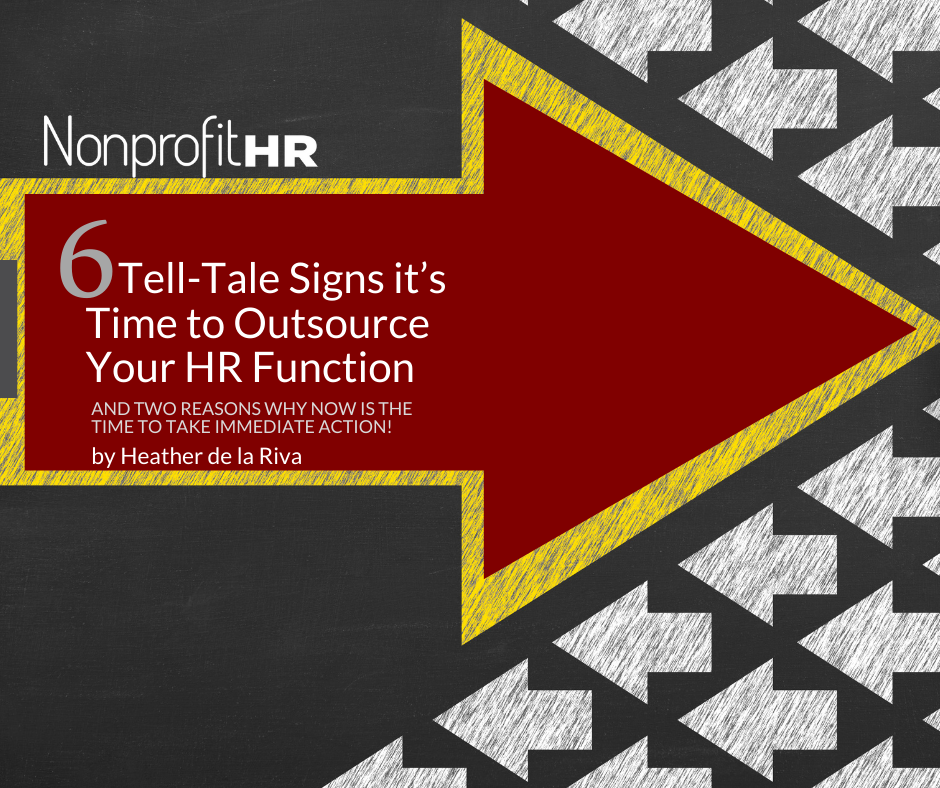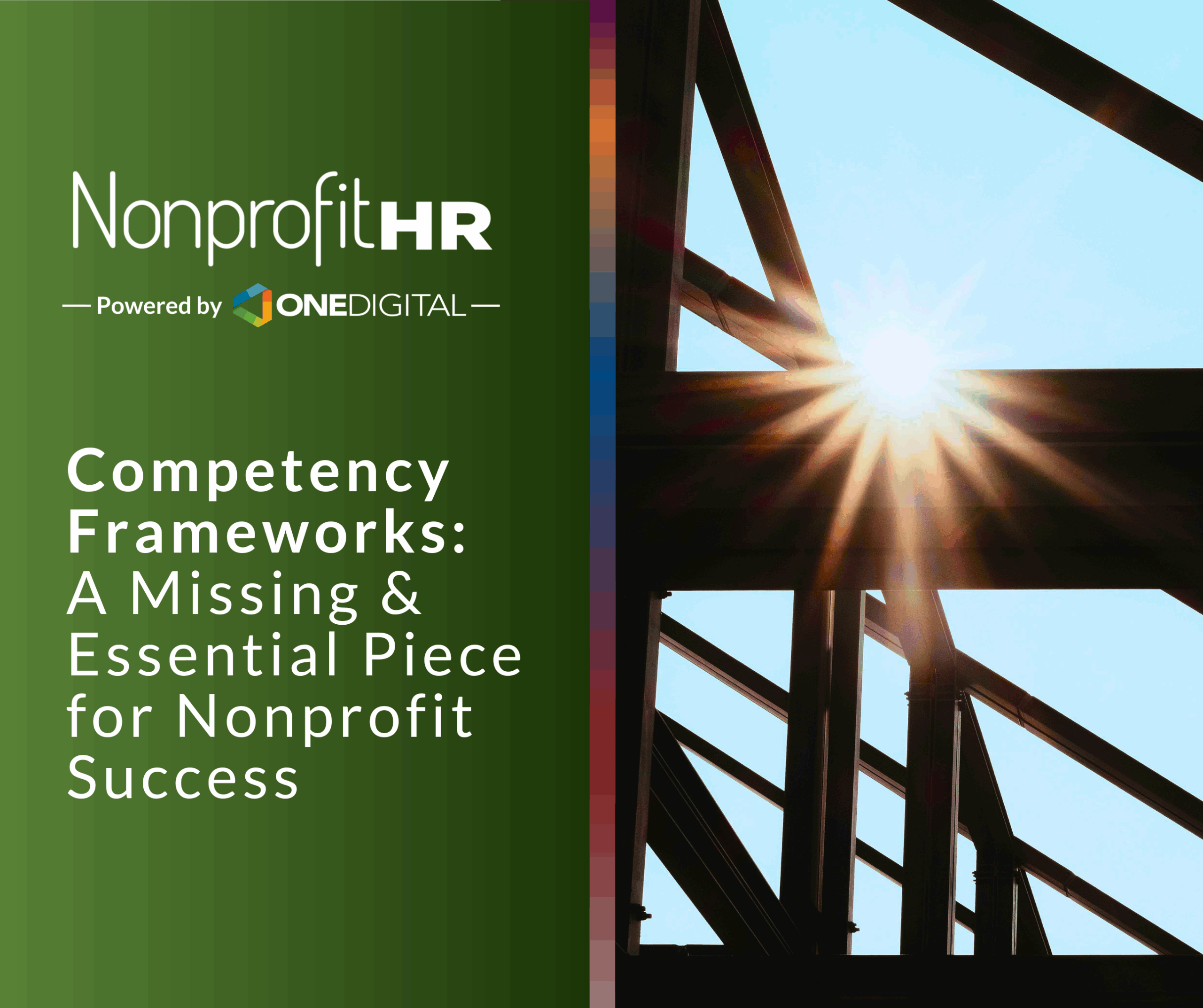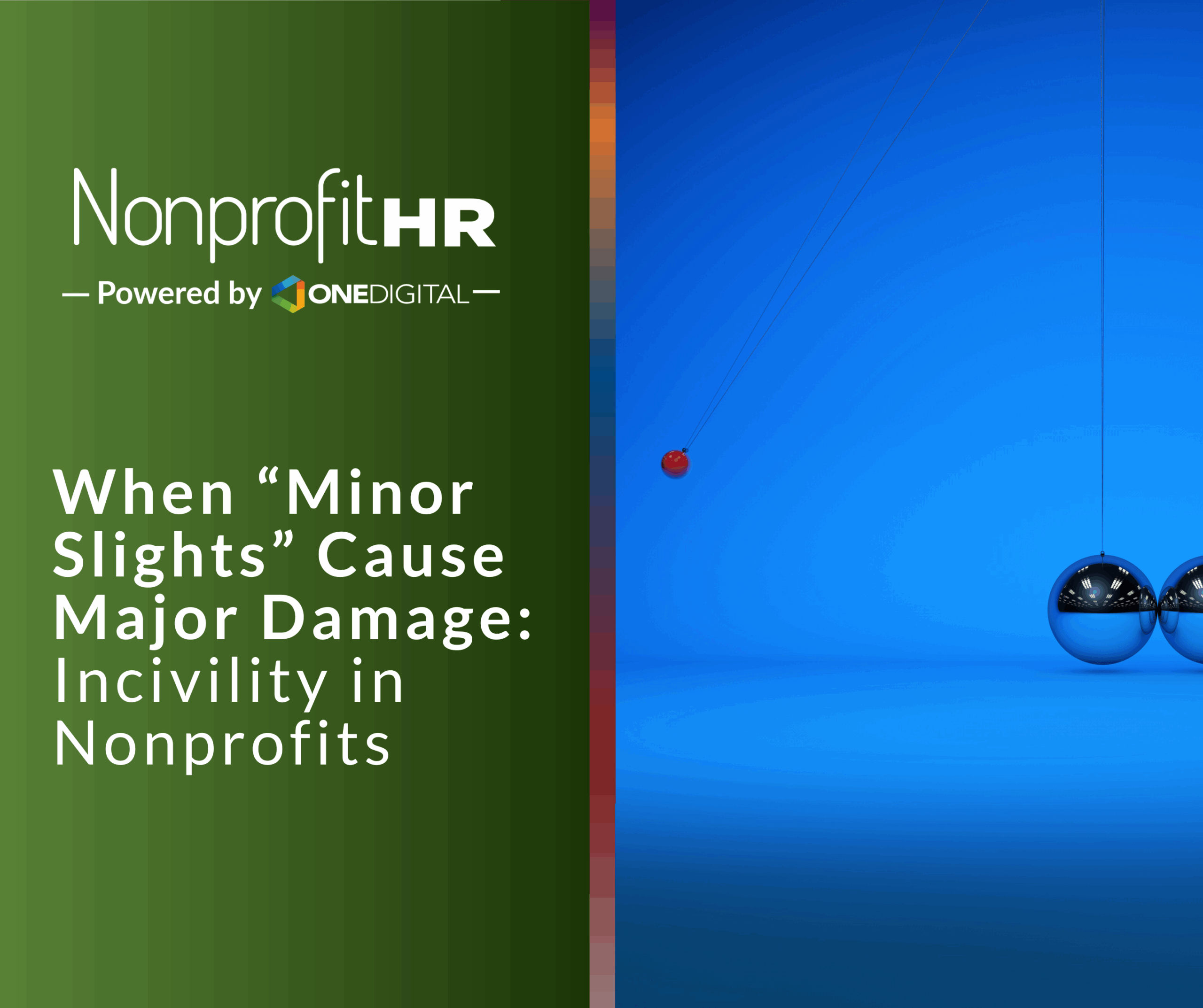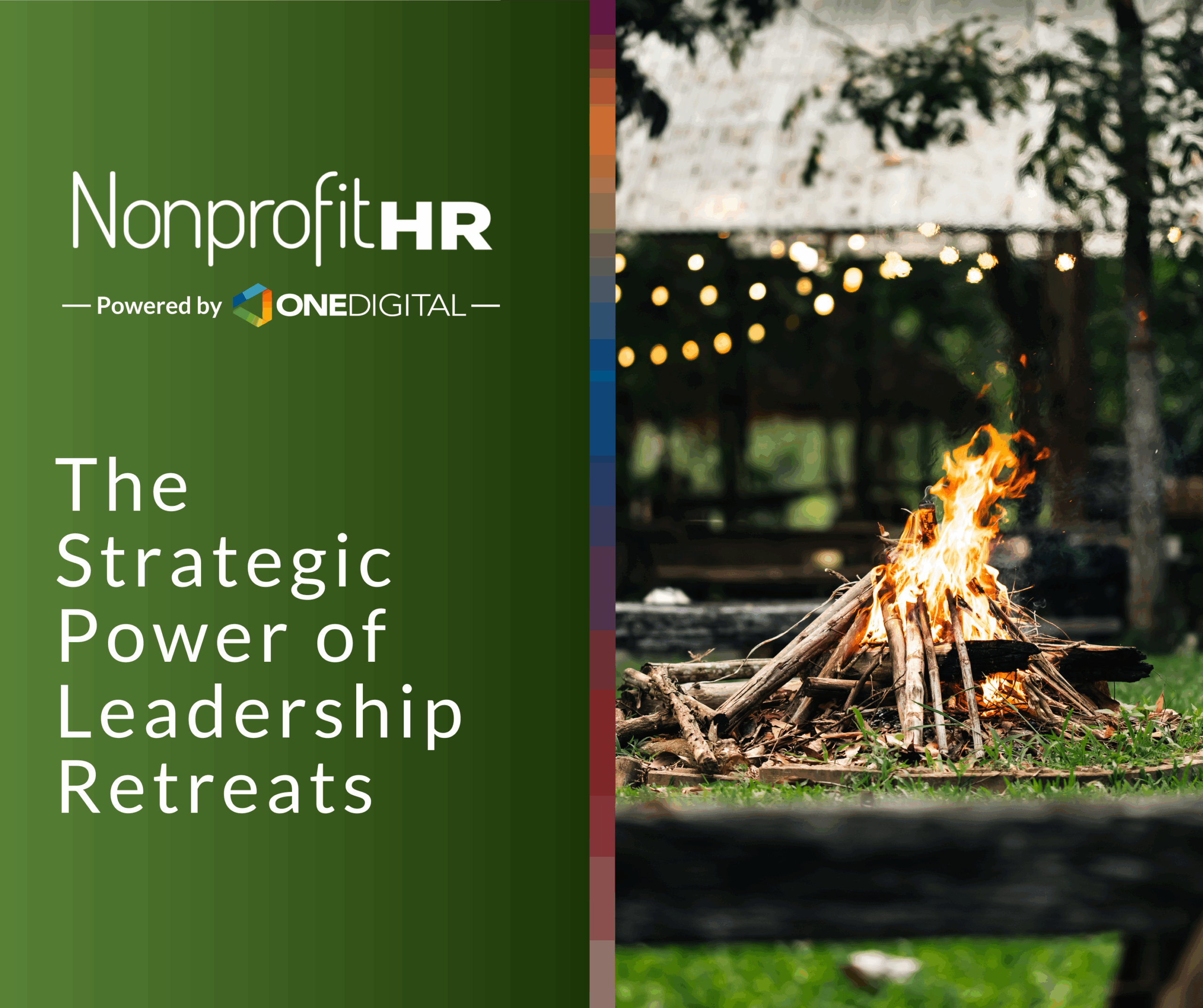WTOP: 5 ways nonprofits can…
And Two Reasons Why Now is the Time to Outsource Your HR Function!
Leaders of social impact organizations have had to come to grips with some harsh realities as of late. COVID outbreaks, and the anticipation of future outbreaks, continue to disrupt business operations and dwindle organizational resources. The social sector and, in turn, its workforce are challenged to meet commitments to members, growing community needs, and partner expectations. It is no wonder why outsourcing is now not only practical, it is a growing solution for many organizations.
Augmenting business practices and operations has become a common element of the new normal and rightfully so. As I shared in this recent CEOUpdate story, an increasing number of organizations have realized that external consultants bring deep expertise adding bench strength, thought partnership and increased capacity to skeleton and over-taxed staff.
We’re living in a dynamic and unprecedented era when it comes to talent management practices. Workforce needs are altogether different today than they were just six months ago. Flexibility in decision-making can be the difference between sinking or swimming. Agility allows for more options when deciding whether to return to the office, extend virtual work from home arrangements, invest in virtual recruitment and onboarding, and determine which HR technologies to invest in. These types of decisions, in many ways, may exceed the capabilities of an organization’s in-house human resources function. If your organization is grappling with the decision of whether or not to outsource, first know that you’re not alone.
Here’s a quick list and sure-fire way to know if outsourcing will help your organization, even if it’s just on an interim basis:
- Your organization has never had a professional with an HR background (education or experience) lead your HR function.
- It has become apparent that you need a seasoned professional to ensure your talent is top of mind in all leadership decision making.
- You need a strategic thought-partner to tie your talent strategy to a nuanced strategic plan.
- You’re ready to elevate your talent management practices which requires subject matter expertise, greater efficiency, and supportive HR technology.
- You need more bandwidth to support growth because someone has left or is going on leave.
- You’ve outgrown an informal HR function or anticipate growth that will require you to integrate customized best practices and compliance to your HR operation.
Simply put, if your practices haven’t been cutting it or what you’ve built before doesn’t fit your current or anticipated needs, outsourcing may be your best bet. Your HR practices should help you withstand crises and be the foundation of your organizational culture. If your practices have been insufficient or ineffective, you likely need someone to assess your HR function in a holistic way to build the practices and culture you want to achieve.
Yes, you’re still grappling with the pandemic but waiting for things to normalize isn’t the answer. Why not? I’m glad you asked, here are a few reasons why NOW is the time to act.
Ignoring Signs – Impacts on Morale and the Avalanche Effect
Some organizations will go at it alone, but the consequences are severe when we ignore the signs shared above. One of the first things that happens is an erosion of trust. As employees start to question leadership, a cultural divide develops, or worsens, and the employee experience and engagement suffers. At the end of the day, you want to ensure that you’re upholding practices and procedures that set your employees up for success, especially in times of crises when uncertainty is all around them. Second, another unintended consequence is burnout which precipitates decreased engagement and productivity. An efficient HR function eases the burden on your talent management team which helps to prevent burnout. Even in an employer market, where people are more likely to stay in their positions, it’s still important for organizations to focus on taking care of their workforce. Caring for your people, especially in tough times, helps to build loyalty. Loyalty helps with retention, engagement, and productivity which ultimately builds stability. Frazzled staff is a recipe for inefficiency and compliance oversight.
Also, a lot of organizations just don’t know what they don’t know. Sometimes leaders don’t realize how important it is to continuously feed HR vs. an annual clean up. When an increase in turnover and employee relations concerns begin to sustainability – this is when leaders are led to solve large systemic challenges. Given that many social impact leaders are all things to all people in organizations today — brand builders, culture champions, fundraisers— and often don’t have HR backgrounds, they don’t see the warning signs until things are on fire. Now, instead of leading an organization, they’re left with time-consuming damage control.

Who normally spearheads the internal discussions and case-building for outsourcing HR? In my experience, a lot of times it is the CEO/ED or sometimes it may be the COO or Director of Finance who oversees the HR function. Normally, it’s someone in the C-suite with the leadership expertise to spark a well-needed discussion. But what if you see the signs and know something needs to be done but don’t have leadership buy-in?
Hint, hint: keep your audience in mind. How do you get them onboard? It really depends on what will resonate with leadership. Are they driven by cost-savings because of inefficiencies or the bottom line? Or, are they an infrastructure builder and value organized systems? Or, are they culture champions?
Shift your message and show your leadership how outsourcing can get them to where they want to be. The question to ask is: “What would we lose if we don’t do this?” Meaning, will we not be able to save money on benefits? Will we lose employee engagement? Will employees leave? If we’re not paying attention to managers and setting them up for success, what will that mean for the employee experience? How are we dealing with poor performers, either in ensuring they are receiving the support they need or offboarding them if it’s not working?
Leave it to the Experts: Maximizing Your Outsourcing Investment
It’s your HR outsourcing partner’s job to make sure you’re achieving maximum impact through talent management best practices. Your consultant will build the priority plan and make the case for ROI through listening, creating and recommending solutions, and helping to implement them. As the client, your role is to communicate relevant information. That means responding to questions and partnering on scheduled calls, meetings, and deadlines together. The relationship is driven on the HR outsourcing partner’s side to make sure client’s needs are met and the HR needle is shifting in the right direction.
Chances are you have met outsourcing consultants before. Now is the time to reach out to them, even if only for a virtual coffee. Recently, a contact reached out to me that I hadn’t spoken with in seven years – we’ve started our engagement with them and begun to assess their needs and start to rebuild their HR foundation! Whose business card or LinkedIn profile are you holding onto?
At the end of the day, you can gain so much from outsourcing – more than your organization is probably able to invest in amidst this current economic climate. I’ll leave you with these few questions about why HR outsourcing needs to be on the top of your list for thought-partnering on your talent management solutions.
Would you allow your director of information technology to do your accounting, or your programs team to run your membership department? In the same way, you wouldn’t want your executive director or accounting team to be your HR person. HR should not be something that’s added on to someone’s plate that doesn’t have a background in HR. It should be done by an expert. There’s too much at stake – your people, your culture, your outcomes.
Heather de la Riva, SPHR, SHRM-SCP, sHRBP
Managing Director, Outsourcing
Nonprofit HR
Would you like to schedule a mini-consult to discuss your organization’s HR outsourcing needs? Email Heather direct! [email protected].































